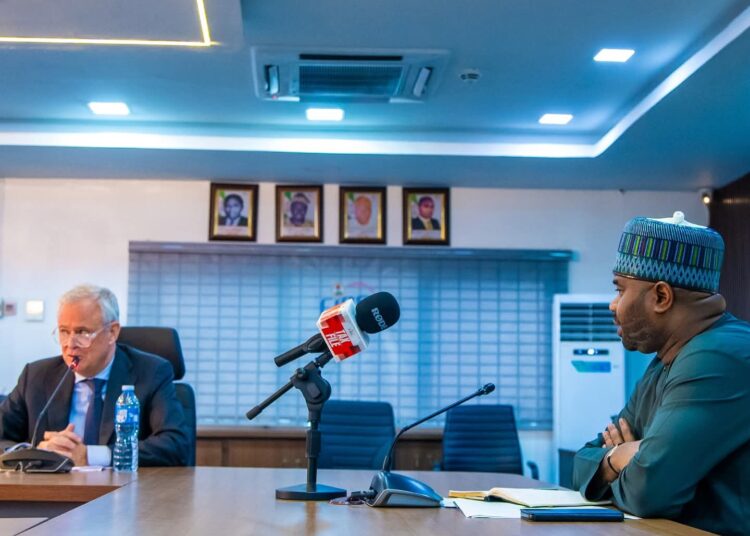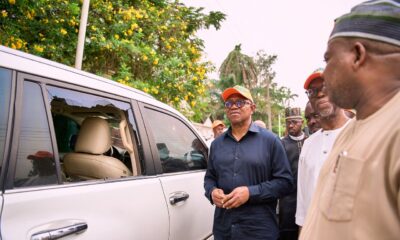Business
Netherlands Begins Double Taxation Agreement Talks with Nigeria
The talks mark a significant step in Nigeria’s evolving international tax diplomacy and its effort to align with global fiscal standards.

The Kingdom of the Netherlands has officially opened talks with the Nigerian government to renegotiate their existing Double Taxation Agreement (DTA), becoming the first foreign partner to do so following President Bola Tinubu‘s sweeping tax reforms.
The historic renegotiation process began on Monday at the Revenue House in Abuja, where the Executive Chairman of the Federal Inland Revenue Service (FIRS), Dr. Zacch Adedeji, received a high-level Dutch delegation led by the Netherlands’ Ambassador to Nigeria, Bengt van Loosdrecht.
According to a statement issued by FIRS, the talks mark a significant step in Nigeria’s evolving international tax diplomacy and its effort to align with global fiscal standards.
This development comes just days after President Tinubu signed into law a package of transformative tax reform bills on June 26, 2025. These reforms aim to expand Nigeria’s tax base, improve administration, and create a more efficient and investor-friendly system.
Welcoming the Dutch team, Dr. Adedeji described the engagement as timely and reflective of the current administration’s fiscal priorities. He stressed that the renegotiation of outdated treaties was critical, especially in light of recent global and domestic tax shifts.
“Recent developments in the domestic and global tax landscape have made the review of the existing agreement unavoidable,” Dr. Adedeji said. “This renegotiation meets with the policy objectives of the ongoing fiscal and tax reforms initiated by the administration of President Bola Ahmed Tinubu. We are committed to broadening the domestic tax base, strengthening tax administration, and ensuring that our tax system supports inclusive economic growth.”
The new tax regime includes four cornerstone laws: the Nigeria Tax Act, Nigeria Tax Administration Act, Nigeria Revenue Service (Establishment) Act, and Joint Tax Board (Establishment) Act. These will formally establish the Nigeria Revenue Service, set to begin operations on January 1, 2026.
DON’T MISS: MultiChoice Slammed with ₦766m Fine for Violating Nigerians’ Data Privacy Rights
Speaking at the session, Ambassador van Loosdrecht praised the longstanding relationship between both nations and underscored the importance of trust in treaty negotiations.
“The fact that we meet here today is an indication of the goodwill and the good faith in which we want to meet with each other,” he said. “I can assure you that my colleagues from the Netherlands will act in good faith. That is always an important basis for good negotiations.”
He added that while treaty discussions are often technical, their foundation lies in building mutual understanding.
“Ultimately, a treaty is about finding common ground and building upon that common ground. I know both of our sides have very competent, professional teams, and I am confident we will have a very fruitful week.”
The renegotiation seeks to modernize key provisions of the existing agreement—particularly those related to double taxation—which stakeholders say are outdated and out of sync with Nigeria’s current economic realities. It also reflects the government’s broader commitment to aligning tax treaties with the new fiscal and legal environment.
In the months ahead, the Nigerian government says it will focus on harmonising tax data, implementing new tax laws, and reviewing other existing treaties to ensure relevance, effectiveness, and support for sustainable growth under the new regime.























You must be logged in to post a comment Login